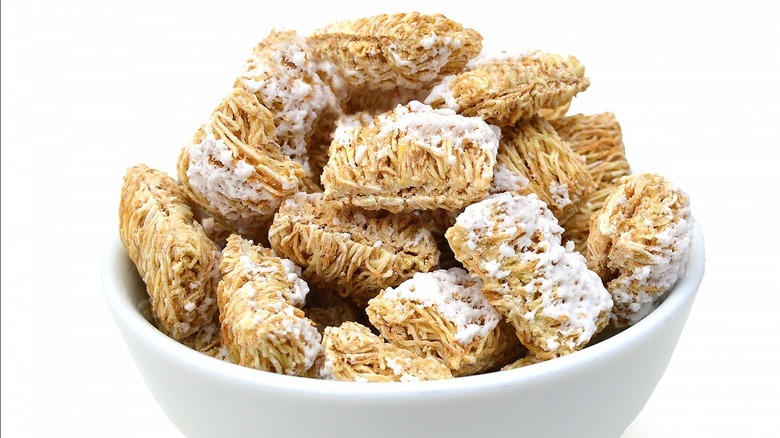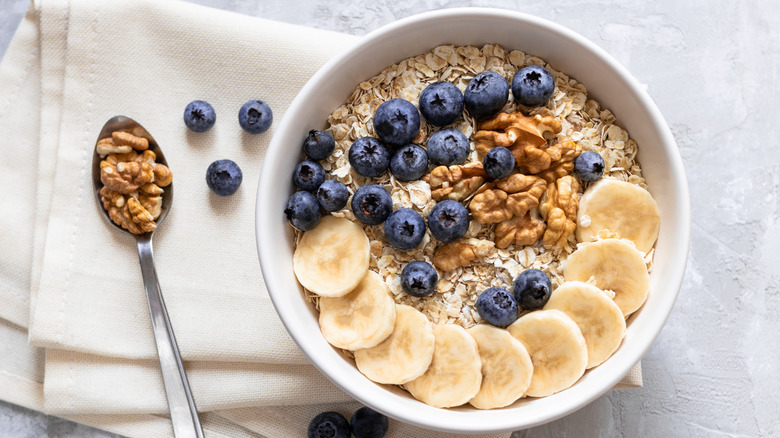7 Breakfast Cereals You Can't Pretend Are Healthy Anymore
Cereal is one of those things many Americans love eating for breakfast. It's fast, easy, and tasty. Plus the companies behind the brands will often market how healthy the product is — perhaps mentioning that it's gluten-free or fat-free. After all, when it was first created by Dr. Kellogg back in the late 19th century, its original intention was always meant to be a balanced, healthy food. Now, cereal aisles tend to be loaded with boxes that have little to do with a good diet.
Science Daily reports how "food marketing creates a false sense of health" because while items may be free of one thing such as fat, they may be loaded with unhealthy amounts of sodium or sugar. This creates what is known as a 'health halo' effect where consumers often believe a food is healthy because of one claim. Researchers reported that "consumers frequently confuse "low fat" with "low calorie", resulting in the overconsumption of certain foods," per The Guardian.
A new proposal from the Food and Drug Administration (FDA) aims to redefine what foods are labeled as healthy. Department of Health and Human Services secretary, Xavier Becerra said, "Nutrition is key to improving our nation's health. Healthy food can lower our risk for chronic disease. But too many people may not know what constitutes healthy food." These new FDA guidelines mean that 7 cereals will fall off the health food radar.
Kellogg's owns four of the seven non-healthy cereals
According to Dietary Guidelines for Americans 2020-2025, adults should be consuming no more than 50 grams of added sugars per day — which equates to about 10% of your total daily calorie count. The American Heart Association, however, suggests only 36 grams for men, 25 grams for women, and 24 grams for children, per Harvard Health Publishing. Daily sodium levels should be around 2400 mg per day. Too much sugar and salt in the diet can lead to heart disease, diabetes, or other health complications.
Four Kellogg's cereals contain too much sugar and sodium under the new FDA guidelines. These are: Raisin Bran (with 9 grams of added sugars), Frosted Mini-Wheats (with 12 grams), Special K (with 4 grams of added sugar and 270 mg of sodium), and Corn Flakes with (4 grams of added sugar and 300 mg of sodium). The other three kinds of cereal are Post Consumer Brand's Honey Bunches of Oats (8 grams of added sugar), Quaker Oats' Life (8 grams of added sugars), and General Mill's Honey Nut Cheerios (12 grams of added sugar), per Food Beast.
Harvard Health Publishing suggests that we choose breakfast foods that are either unprocessed or minimally processed, such as oatmeal or whole-grain toast. The longer the list of ingredients on the box is, the more likely it is that the cereal is unhealthy.

